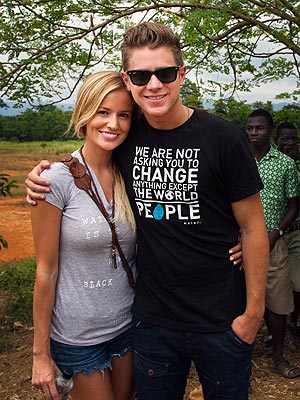Introducing Vancouver’s new Bike Share Program… (maybe)!
Sunday, March 31st, 2013I first came across this idea when preparing material for our team’s class lecture last month. But since it’s something I am so EXCITED about, I decided to do some more research and blog about it! Collaborating with the city of Vancouver’s “Greenest City by 2020” goal and action plan, Alta Bicycle Share, a privately owned and operated company based out of Portland, would run the system in Vancouver. The plan was for the program to be produced this Spring and launched late Spring/ early Summer of 2013, but it is skeptical that the program won’t actually be running until 2014. The reason for the delay is issues with Vancouver’s mandatory bike-helmet law.
According to an article from the Vancouver Sun, BC’s Motor Vehicle Act provides $100 fines for anyone who rides a bike on a public motorway without a helmet. A solution to this problem was a helmet-dispensing machine which was prototyped by Richmond-based SandVault, who was awarded $50,000 to come up with the prototype. The machine is solar-powered, user-friendly, and hygienic. For people worried about any sanitation issues associated with sharing helmets, the machines ensure all helmets are “quarantined” and not rented out until they are cleaned and checked for safety. Each helmet will also be equipped with RFID tags, and the whole operation, including sanitization, will cost $1.9 million annually.

Bike share programs have resounding success in over 300 cities worldwide, including Montreal. If launched in Vancouver, the plan is to initially construct 125 docking stations holding a total of 1,500 shared bicycles. The service allows individuals to rent a bicycle (and helmet) at a docking station, ride the bike to a new or same destination, and then return the bike and helmet to any available docking station within the service area. For Vancouver, the proposed service area will be confined to Vancouver’s core, with the borders being Arbutus on the West and Main St. on the East, and from downtown to as south as Broadway.
Personally, I am super excited about the idea of a bike-share program in Vancouver. I do not think enough people bike, it hasn’t really taken off as a “trend” here; maybe the numerous hills in Vancouver are to blame, but there are way too many people using cars in the Summer!! If this program is successful in over 300 cities worldwide, it baffles me that Vancouver hasn’t jumped at this opportunity yet, with it’s record as one of the World’s leading cities. Today’s weather is gorgeous, blue skies and sunny, and all I want to do is take my bike to the seawall and soak up some sun. Of of the problems I have is that I live quite far from downtown, my bike doesn’t fit in my car, and biking from my home to the seawall would be a workout and half in itself (not to mention taking all the busy streets and riding along the bridges is slightly out of my comfort zone this early on in the season). If only Vancouver had a bike share program, all my issues would be solved! Come of Vancouver, make this happen!!


